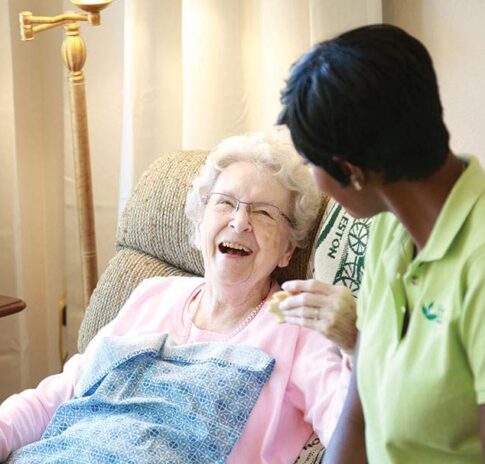Today we handed the spotlight over to Martine Ehrenclou, M.A., an award-winning author and patient advocate, who shared her personal experiences of handling the care and hospitalization of her mother and godmother and how others can navigate the intimidating hospital world. Feel free to share your thoughts in the comments section below. Have a great weekend, all!
— Jeff Bevis
I began my journey into advocacy eleven years ago when my mother and godmother were patients in hospitals for very lengthy stays (five months and seven months respectively.) I was not prepared for what I saw and experienced with their care as I’d never been in a hospital before except to give birth to our daughter.
I did not know at the time that what I was doing was called “advocacy.” I simply thought that I was helping my loved ones who were subjected to neglect, misdiagnoses, medication mistakes, hospital infections, and a variety of other medical errors. It was their suffering at the hands of a system I once thought was the safest place a patient could be that drove me into the role of advocate and author for my last award-winning book, Critical Conditions: The Essential Hospital Guide To Get Your Loved One Out Alive.
Even though the subtitle sounds and looks scary, it’s really about keeping your loved one safe during a hospital stay. And there is something you can do. Plenty, actually. Just because there are nearly 100,000 fatal medical errors that occur each year in hospitals, doesn’t mean you can’t prevent many of them. You can.
If you have an older loved one going into the hospital, there are several strategies to implement to keep him/her safe and comfortable. Remember, nurses are dealing with patient overload and especially on nights, weekends and holiday weekends, there are fewer nurses to care for patients. Since you are already a caregiver for your loved one, becoming an advocate is simply an extension of that. Read over the following tips and prepare ahead of time so if in the event your loved one has to be in the hospital for a period of time, you’ll know exactly what to do.
1. Become your loved one’s advocate. Since patients are ill, recovering or sedated, it is nearly impossible for them to advocate for themselves. Try to imagine keeping track of your medications, conversations with physicians and nurses, procedures, treatments and tests while you are too sick to be walking around.
2. Get a notebook. This notebook will be used to take notes on conversations with medical professionals and to document your loved one’s diagnosis, treatment plan, any test, procedure or surgery he/she is to have during the hospital stay. Also document the names and contact information for primary nurses and doctors who take care of the patient.
3. Create a list of your loved one’s medications. In partnership with the patient, (if possible) create a list of his/her current medications, their dosages, over-the-counter medications, herbs and supplements. List his/her allergies to medications.
4. Create a patient safety checklist. Create a patient safety checklist with the patient. You or your loved one will repeat each item at each new medical encounter during the hospital stay.
-The patient’s full name.
-The patient’s date of birth.
-The patient’s physician’s name.
-The patient’s diagnosis and treatment plan.
5. Identify the patient’s primary nurses. Make sure you know who the registered nurses are who are responsible for your loved one’s care. Hospital staff dress alike. You don’t want to accidentally ask a hospital tech for pain medication for the patient. Your request will never make it to the appropriate medical professional—the primary nurse.
6. Prevent hospital-acquired infectious diseases. Ask everyone who comes in contact with your loved one to wash their hands thoroughly (in warm, soapy water for 20 seconds) and that includes nurses and doctors. Try to get a private hospital room to cut down on the number of medical professionals and visitors who enter the room and can bring in diseases.
7. Be aware when the patient is discharged. Many errors occur upon discharge. Be with your loved one when the discharge planner or nurse is preparing the patient for discharge. Write down details about home care, when your loved one should schedule an appointment with his/her doctor, which medications should be taken and when. Ask for a plan for home care.
8. Ask questions. If there is anything you don’t understand or are confused about, ask questions. It is okay to ask for clarification from the doctors and nurses who are caring for your loved one. If something seems out of the ordinary, speak up!
Martine Ehrenclou, M.A., is an award-winning author and patient advocate. Her mission is bring to light the importance of advocacy for ourselves and others. Her last book, Critical Conditions: The Essential Hospital Guide To Get Your Loved One Out Alive (Lemon Grove Press) won 15 book awards. Her new book, The Take-Charge Patient: How You Can Get The Best Medical Care (Lemon Grove Press) will be release May 15, 2012. To contact her www.criticalconditions.com

